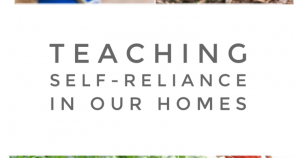Every year there are days set aside for everyone to concentrate on kindness to others. The World Kindness Day held in the fall, Random Acts of Kindness day in the winter, and the whole month of February is devoted to kindness. It is great to have those special occasions, but it is those random acts and sometimes anonymous acts that pleasantly surprise us and create a desire to “pay it forward,” doing the same for others.
What can we do though, what are the opportunities we have to be kind that come up for us unexpectedly that we do not plan for or may not be encouraged to do. All of us have these opportunities, and our children can look for ways to be a part of doing kind acts this way.
An act of kindness may be done without prompting or without thinking about it too much on purpose if we are practicing thoughtfulness. When walking into a store, we may thoughtfully look around to see if someone is near us that we could hold the door open to let them in. We may be even aware of not letting the door go back into their face as we are leaving. Or letting someone in line ahead of us if they have fewer items than ourselves. That would be thoughtful and use courtesy.
Our act of kindness may be as simple as a smile directed to someone we pass on the sidewalk, or the recognition of a homeless person. Little recognition’s of visibility can make a big difference in a person’s life, so how do we show that we see and value people? Every time we do a kind act for someone we are saying to them, “I see you. I value you as human.” So it could be a smile, question or a helping hand.
How could we show kindness at home not connected to what expectations of sharing responsibilities? What could you do if a family member was sick, how could you be helpful? It might be as simple as being more quiet than usual, or asking what they need that we might bring to them? We might show them we are thinking about them by getting or making a card or delivering flowers to their side to cheer them up.
At school it could be noticing the new person in your class, inviting them to join your lunch table. Maybe you have seen someone that is alone and not engaged with others. Do they need a listening ear, a friend, or just an acknowledgment? They may be sad about an event in their life, or they may be getting picked on by aggressors. What could you do to be kind?
How would you show kindness to your pets? How could you show kindness to others in the community, seniors, handicapped, homeless? If you are a parent, think of areas of life that you would like to see your child show more kindness or show it differently and ask them “What would kindness look like in this situation?”
When we take care of others when they are in need or least expect it, we are practicing kindness. Our goal is to THINK KINDNESS.

